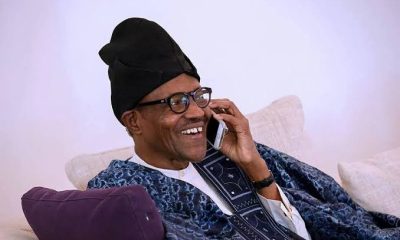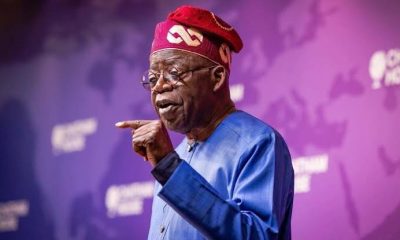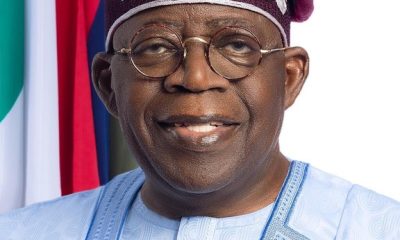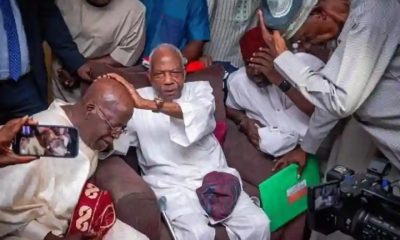National
Only homegrown solutions will solve African problems, says Tinubu
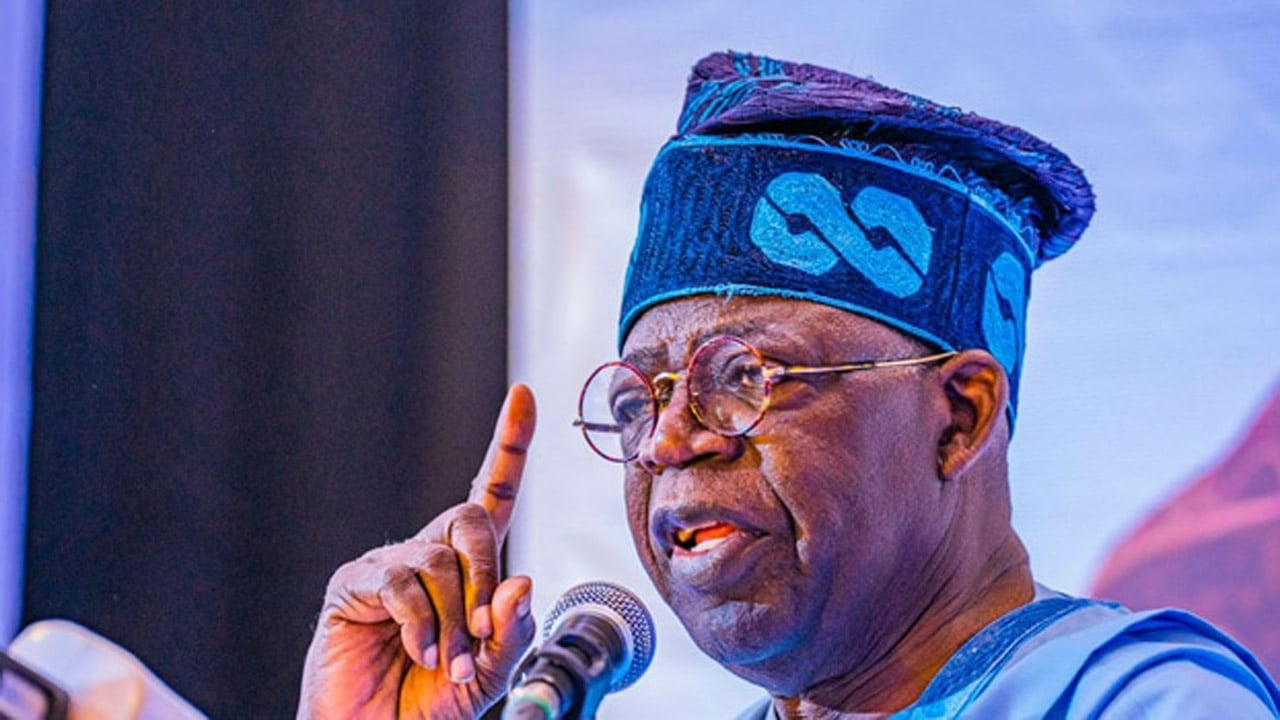
President Bola Tinubu says Africa has a better chance of overcoming its economic and security challenges through local solutions and consistency on its pledges and agreements.
Tinubu stated this while receiving Letters of Credence from three envoys at the State House on Thursday in Abuja.
The Ambassadors are that of Ethiopia, Mr Awall Wagris Mohammed; Cuba, Mrs Miriam Morales Palmero, and United Arab Emirate, Salem Saeed Al-Shamsi.
In a side meeting with the Ambassador of Ethiopia, the President assured the envoy that Nigeria would continue to strengthen its ties with African countries in the areas of trade, security, and economic growth.
“Africans need to work for the progress of Africa. We should be able to resolve our internal problems, collectively. It requires a great commitment, but we must do that.
“No one can understand our people better than we do. Home-grown solutions are better for all of us, and the remedies will last longer,” he said.
Mohammed congratulated the President for the decisions he has taken in the country, and the impact of the policies on the continent, assuring of his dedication to improve relations between Nigeria and Ethiopia.
In another meeting with the Ambassador of Cuba, Tinubu commended Cuba’s excellence in indigenous medical sciences and accessible healthcare at the grassroots, as well as ensuring the stability of their surrounding region.
The president noted that Nigeria and Cuba share some cultural similarities that can be explored to improve the lives of citizens, especially in tourism and other economic sectors.
“We should collaborate more in science and technology, an area that will improve the lives of our people, particularly the youthful population Nigeria is so blessed with,” Tinubu said.
Receiving the UAE Ambassador, the President directed that issues affecting relations with the Emirates Airline, and issuance of visas to Nigerians should be “immediately’’ resolved, adding that he would “personally’’ intervene if necessary.
“We are a family with UAE, we only live in separate rooms, but we are in the same house. We should look at the issues as a family problem, and resolve it amicably.
“As you know in every family, there are peculiarities. You can have an erring son, or daughter, but we must work together. We need to agree on core aviation and immigration issues,” the President said.
The Ambassador of UAE said he already sees himself as a “Nigerian’’ considering the historical antecedents of the country, its long-standing leadership role in Africa, and its reputation for hospitality to strangers.
“Since I arrived in the country, I have been working on 24 agreements. We are getting somewhere. These are small issues, all within a family, and they will be resolved.
“I am grateful to be here in Nigeria. I am also very grateful to meet His Excellency, President Tinubu, who is a great leader in Nigeria, and Africa. Please accept me as a Nigerian and consider me a member of your team,” he said.
Headline
EFCC bars dollar transactions, orders embassies to charge in naira

The Economic and Financial Crimes Commission has barred foreign missions based in Nigeria from transacting in foreign currencies and mandated them to use Naira in their financial businesses.
The EFCC has also mandated Nigerian foreign missions domiciled abroad to accept Naira in their financial businesses.
The anti-graft agency said the move is to tackle the dollarisation of the Nigerian economy and the degradation of the naira
The Commission, therefore, asked the government to stop foreign missions in Nigeria from charging visa and other consular services in foreign denominations.
The EFCC gave the advisory in a letter to the Minister of Foreign Affairs, Amb. Yusuf Tuggar, for onward transmission to all foreign missions in the country.
In the letter, the EFCC said it issued the advisory because the practice of paying for consular services in dollars was in conflict with extant laws and financial regulations in Nigeria.
In a letter dated April 5, 2024, which was addressed to the Minister of Foreign Affairs, Ambassador Yusuf Tuggar, titled: “EFCC Advisory to Foreign Missions against Invoicing in US Dollar,” the EFCC Chairman, Ola Olukoyede expressed dismay over the invoicing of consular services in Nigeria by foreign missions in dollars.
The EFCC cited Section 20(1) of the Central Bank of Nigeria Act, 2007, which makes currencies issued by the apex bank the only legal tender in Nigeria.
The letter read, “I present to you the compliments of the Economic and Financial Crimes Commission, and wish to notify you about the commission’s observation, with dismay, regarding the unhealthy practice by some foreign missions to invoice consular services to Nigerians and other foreign nationals in the country in United States dollar ($).
“It states that ‘the currency notes issued by the Bank shall be the legal tender in Nigeria on their face value for the payment of any amount’.
“This presupposes that any transaction in currencies other than the naira anywhere in Nigeria contravenes the law and is, therefore, illegal.”
The commission further stated that the rejection of the naira for consular services in Nigeria by certain missions, along with non-compliance with foreign exchange regulations in determining service costs, is not just unlawful but also undermines the nation’s sovereignty embodied in its official currency.
The letter continues: “This trend can no longer be tolerated, especially in a volatile economic environment where the country’s macroeconomic policies are constantly under attack by all manner of state and non-state actors.
“In light of the above, you may wish to convey the commission’s displeasure to all missions in Nigeria and restate Nigeria’s desire for their operations not to conflict with extant laws and regulations in the country.”
Diplomatic sources said yesterday, May 10, that some embassies were wondering whether the EFCC’s advisory represented the position of the Federal Government.
Headline
Suspend cybersecurity levy– Reps to CBN

The House of Representatives on Thursday asked the Central Bank of Nigeria to withdraw the circular directing all banks to commence charging a 0.5 per cent cybersecurity levy on all electronic transactions within the country, The Nation reports.
The motion on the urgent need to halt and modify the implementation of the cybersecurity levy was moved by the member representing the Obio/Akpor Constituency, Kingsley Chinda.
The House urged the CBN to withdraw the circular and “issue a more understandable one,” as Chinda had drawn the attention of the House to multiple interpretations of the CBN directive against the specifications in the Cybersecurity Act.
-

 Headline5 days ago
Headline5 days agoSuspend cybersecurity levy– Reps to CBN
-

 Business5 days ago
Business5 days agoNigeria needs over $2bn to revive Ajaokuta Steel Plant, says Minister
-

 Headline3 days ago
Headline3 days agoPrince Harry visits sick Nigerian soldiers in Kaduna
-

 Entertainment3 days ago
Entertainment3 days agoAMVCA Cultural Day: BBNaija’s Neo, Venita win Best Dressed Male, Female
-

 Metro3 days ago
Metro3 days agoEx-Sports Minister laments after hospital neglected him for hours over N80000 deposit
-

 Headline5 days ago
Headline5 days agoTinubu resumes work after foreign trip
-

 News5 days ago
News5 days agoShan George’s money returned to Zenith Bank account

